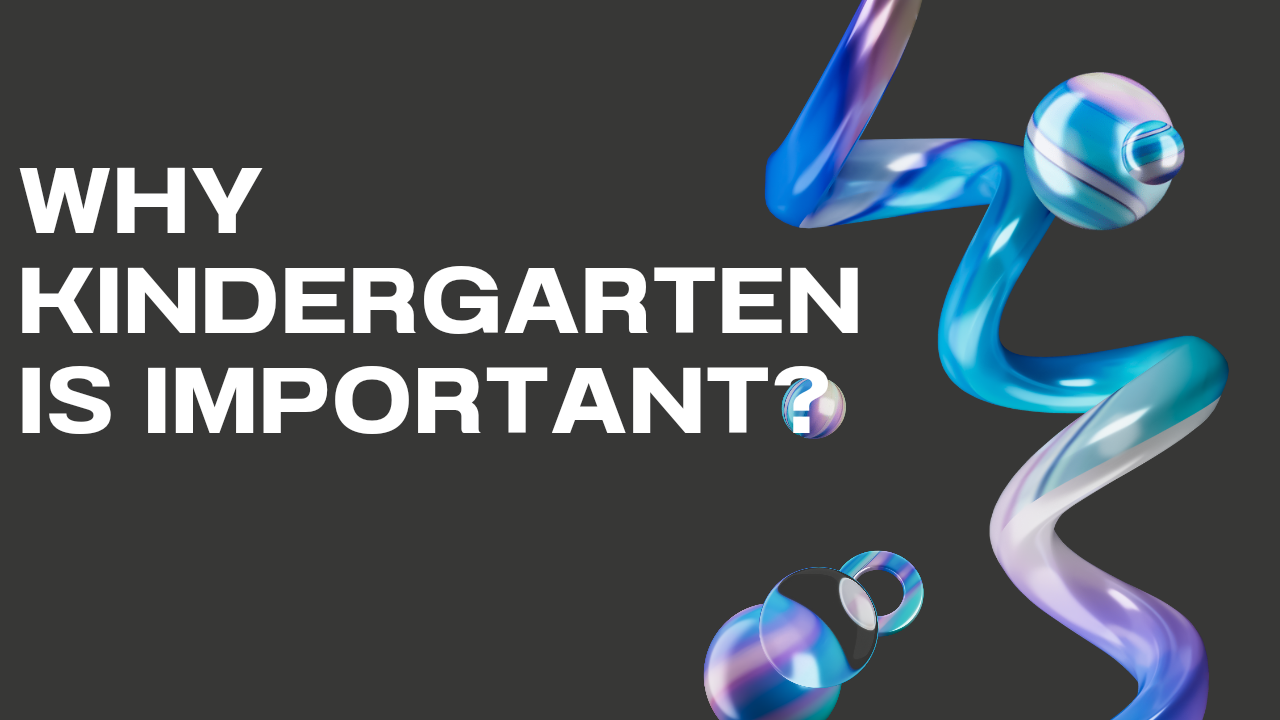Understanding the Significance of Kindergarten: Setting the Stage for Lifelong Achievement
Kindergarten, often viewed as the initial step into formal education, plays a crucial role in a child’s development. It’s a unique blend of learning and play that lays the groundwork for future academic and social success. Understanding why kindergarten is important helps parents and educators prioritize and support this critical stage in a child’s life. Let’s delve into the key reasons why kindergarten is indispensable.
1. Foundation for Academic Skills
Kindergarten introduces children to the basics of literacy and numeracy. Through engaging activities, children learn to recognize letters, sounds, and words, setting the stage for reading and writing. Basic math concepts, such as counting, recognizing shapes, and understanding patterns, are also introduced. These early academic skills are essential for future learning and help children develop a positive attitude towards school.
2. Development of Social Skills
Social interaction is a fundamental aspect of kindergarten. Children learn to share, take turns, and work collaboratively with their peers. These interactions teach them how to communicate effectively, resolve conflicts, and develop empathy. Kindergarten provides a structured environment where children can practice these skills, which are crucial for building healthy relationships throughout their lives.
3. Emotional Growth
Kindergarten helps children develop emotional resilience. They learn to manage their emotions, cope with separation from their parents, and adapt to new routines and environments. Teachers play a vital role in supporting children’s emotional well-being, helping them navigate feelings of frustration, excitement, and disappointment. This emotional foundation is critical for handling the complexities of later life stages.
4. Introduction to Structure and Routine
The kindergarten environment introduces children to the concept of structure and routine. They learn to follow a schedule, adhere to classroom rules, and understand the importance of discipline and responsibility. These early lessons in time management and organization help children adapt to the more structured setting of elementary school and beyond.
5. Cultivation of Curiosity and Creativity
Kindergarten nurtures a child’s natural curiosity and creativity. Through play-based learning, children explore their interests and express their creativity. Activities such as art, music, and imaginative play allow children to think outside the box and develop problem-solving skills. Encouraging creativity at this stage fosters a love for learning and innovation.
6. Physical Development
Physical activity is an integral part of kindergarten programs. Children engage in activities that develop their fine and gross motor skills, such as drawing, cutting, running, and climbing. These activities not only promote physical health but also enhance coordination and spatial awareness, which are important for academic tasks like writing and sports participation.
7. Building Independence
Kindergarten helps children build independence. Simple tasks such as dressing themselves, managing personal belongings, and making choices about activities empower children to become self-reliant. This growing independence boosts their confidence and prepares them for more significant responsibilities in later years.
8. Assessment and Early Intervention
Kindergarten provides an opportunity for teachers to observe and assess a child’s development. Early identification of learning difficulties, speech delays, or social challenges allows for timely interventions. Addressing these issues early can significantly improve a child’s educational outcomes and prevent potential struggles in the future.
Kindergarten is more than just a preparatory stage for primary school; it is a pivotal period that shapes a child’s academic, social, and emotional development. By fostering a love for learning, promoting social interaction, and developing essential life skills, kindergarten sets the stage for lifelong success. Recognizing the importance of this foundational year helps parents and educators provide the support and resources children need to thrive. Investing in quality kindergarten education is investing in the future of our children.


